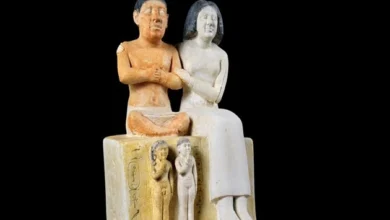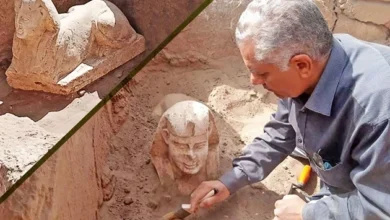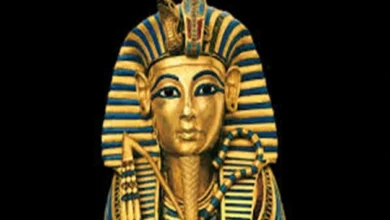Jewish commandments

Moses, the chosen leader of the descendants of Abraham, brought the Israelites out of the Egyptian exile. As a “translator” of the Higher God, he reveals to the Israelites the manifestation of this will on Mount Sinai.
Shocked by the greatness of the natural element that accompanied Moses’ “communion” with the Creator, the Jews agreed to fulfil all the instructions of the Almighty in full guarantee for each other according to the principle “we will do and hear” (Exodus 24: 7).
Moses received these instructions in the form of the Torah and the commandments in it. Since the Torah was given to the Jewish people, the commandments are for the Jews.
There are 613 commandments ( mitzvot ) in total, of which 248 are commandments, and 365 are forbidding.
Rambam or Maimonides, this great scholar and great authority in the Talmud, owns the work “Mishnah Torah” and an ordered list of 613 commandments, indicating the chapters of the Torah.
How do you comply with so many regulations?
Some of the commandments and proscription listed in the list were relevant only when their service to the Creator awarded the people of the Torah the Temple. In the book of Kings: – “I have sanctified this house, which you have built, so that My Name may abide there forever, and My eyes and My heart will be there all the days.”
Spiritual laws in the Creator’s dwelling house were the raison d’être and the natural life force of the Jews. The proper fulfilment was monitored by the Cohens and Levites, who connected the people with the Creator. All the clergy were at a high spiritual and moral level and enjoyed the unquestioning trust of the chosen people. It was the responsibility of the Jews to take care of supporting their spiritual leaders, who did not have their property, who were engaged only in serving in the Temple. The commandments of pilgrimage on holidays and sacrifices would be unthinkable without the 10th part of the harvest, sacrificial lambs and gifts brought by the Jews to the Temple. The people were active participant in the temple life.
Another test of loyalty and fortitude followed this happy period. The struggle for power after Solomon’s death proved to be a severe test. And they did not fulfil the conditions for the Creator’s stay with them: – “… If you and your sons depart from Me and do not keep My commandments and My statutes …, then I will demolish Israel from the face of the earth that I gave him, and the House that I am sanctified in my name … “/ book of Kings (Melachim 1, 9: 3)
Confusion of opinions began, the temptation to serve the conquerors-idolaters who came to the promised land. Even the Cohens were chosen through bribery to please the Roman authorities. Serving foreign gods, intrigue, fratricide is incompatible with the spirit of the Temple. The fall of the spiritual Temple is the essence of the fall of the material temple.
Disagreements between the Jews have accompanied the people of Israel for centuries. Still, all the wise men have one opinion about the reasons for the collapse of the Temple – enmity and hatred between the Jews.
What to do, how to fulfil the commandments, were to bring gifts, how to exist without connection with the Source of life, without the Temple, in which an apparent divine presence was felt.
It is stretching for us to imagine what the Jews, who were tied “in body and soul” to the Temple, experienced, life ceased to be a value. They were ready to sacrifice it to defend the Temple. The rebellion of Bar Kochba, a strong leader who managed to rally like-minded people, was doomed to failure. Their chosenness determines the fate of the Jews to embody the idea of unity in the service of the only patron.
The most extensive exile began, lasting 2 thousand years, and it continues to this day.
In the land of Isreal, the sages who survived the persecution of the Roman authorities gathered in secret and decided to compile a collection of the rules of the oral Torah. These marked the beginning of the Mishnah at the beginning of the third century AD. It collected 62 treatises of the sages, written down from the words of the “remembrancers”, who kept in their memory many institutions, events and rules from the time of their service in the Temple. They were remembered in every generation. The Oral Torah is endless. It contains a vast number of comments and explanations that accompanied the lessons of the great teachers of the law and spiritual authorities in studying the Torah and the Commandments.
In all the Diaspora countries, where Jews were tolerated, they built synagogues and centres for Torah study. In Eastern Europe, even before the Holocaust, young people who studied Torah were revered among Jews. These poor yeshiva students were willingly taken as husbands for their daughters by the local wealthy. It was believed that studying the Torah makes a Jew a person. The story evidences this.
M. Chagall arrived in the land of Israel in the middle of the last century to participate in the demonstration of his paintings. After meeting with various high-ranking officials, he wanted to go to the settlement where a friend of the Hasid lived; they studied with the same teacher in childhood. When Chagall left, touched by the meeting, the journalists decided to interview a friend of his youth
What makes a Jew human
Do I need to think about the meaning of the commandments? For 20 centuries, the fulfilment of the commandments occurs according to the order once determined by the law teachers. There was a fear that the dispersion threatened to be cut off from Jewry. This was justified at the time. There were opponents of the search for meaning – “We do not need to look for the meaning of the commandments, even if we do not know the purpose, they are for us as the orders of the king. “[Job 11: 7] There were sages who held opposite views. So Rambam explained that only conscious observance is perfect.
Now, in the era of high technologies and developed egoism, we are in a period called the time of deliverance and return to the Creator. It is inconceivable without fulfilling the main rule of the Torah “love your neighbour as yourself”. This commandment makes the Jew a person, life – filled with meaning, and the people united.
The 16th century already marks a turning point in the attitude towards the Torah and the commandments, a more thoughtful reading of them. The works of the great Ari and his followers: Rabbi Abraham Kook, Yehuda Ashlag and the students of the Baal Shem Tov – gave a new direction corresponding to the time. Commandments are spiritual actions recorded in the language of our world. Therefore, the seemingly simple words of the Torah have a deep inner meaning.
We are required to correct our hearts, our selfish desires, which have separated the people for a long time. We repair 613 selfish desires with the 613th Lights of the Torah. This is an internal process of a person’s spiritual maturation. Kabbalists and many commentators of the Torah urge us to take this attitude towards the commandments.
“And do not make yourself a crown out of the commandments to adorn yourself among people, taking pride in fulfilling them. Otherwise, we do not do what is pleasing to God, but only what is pleasing to people. ”
“Look at the words of the sage Abraham ibn Ezra from his book “Yesod mora “: “Now pay attention and know that all the commandments written in the Torah are designed to correct the heart “Baal Hasulam, Preface to the book “Panim Meirot.”
“I see that the main reason for the failure to correct human nature is that they neglect the Light of the Creator; they ignore it both in the heart and in mind. Everyone is turning now only to perform stupidly pompous actions as if one can only fulfil the commandments in the body without a soul. “Rav Kook, Letters.
The egoistic world has ended its existence; it looks like a patient whose existence is supported by artificial life support. Correction is entrusted to the people of Israel. He was chosen to bring all of humanity to the Creator by correcting himself.




